
Mountain was an American hard rock band formed in Long Island, New York, in 1969. Originally consisting of vocalist-guitarist Leslie West, bassist-vocalist Felix Pappalardi, keyboardist Steve Knight, and drummer N. D. Smart, the group disbanded in 1972, but reunited on several occasions prior to West's death in 2020. They are best-known for their 1970 smash hit song "Mississippi Queen", which remains a staple of classic rock radio, as well as the heavily sampled song "Long Red", and their performance at Woodstock Festival in 1969. Mountain is one of many bands commonly credited with influencing the development of heavy metal music during the 1970s. The group's musical style primarily consisted of hard rock, blues rock, and heavy metal.

Jubilation is the tenth and final studio album by Canadian/American rock group the Band. Recorded in the spring of 1998 in Levon Helm's home studio in Woodstock, New York, it was released on September 15, 1998. For the first time since the group reformed without guitarist and songwriter Robbie Robertson, there were more originals than covers. Songs include "Last Train to Memphis", featuring guest guitarist Eric Clapton, Garth Hudson's solo instrumental closer "French Girls", Rick Danko's "High Cotton" and the ode to Ronnie Hawkins, "White Cadillac".

West, Bruce and Laing were a Scottish–American-Canadian blues rock power trio super-group formed in 1972 by Leslie West, Jack Bruce, and Corky Laing. The band released two studio albums, Why Dontcha (1972) and Whatever Turns You On (1973), during their active tenure. Their disbanding was officially announced in early 1974 prior to the release of their third and last album, Live 'n' Kickin'.

Two Sides of the Moon is the only solo studio album by the English rock musician Keith Moon, drummer for the Who. It peaked at No. 155 on the Billboard 200. The album title was credited to Ringo Starr. Rather than using the album as a chance to showcase his drumming skill, Moon sang lead vocals on all tracks, and played drums only on three of the tracks, although he played percussion on "Don't Worry Baby". The album features contributions from Ringo Starr, Harry Nilsson, Joe Walsh of the Eagles, Jim Keltner, Bobby Keys, Klaus Voormann, John Sebastian, Flo & Eddie, Spencer Davis, Dick Dale, Suzi Quatro's sister Patti Quatro, Patti's bandmates from Fanny Jean Millington and Nickey Barclay, and future actor Miguel Ferrer.

The Best: Sittin' In Again is the 10th release by singer-songwriter duo Loggins and Messina, a compilation album released in mid-2005. This release was timed to preview the duo's subsequent reunion tour. It contains most of their hits and provides a retrospective view of their music from 1971 to 1974. The 18 tracks appearing on the collection were personally selected by Loggins and Messina. Six of the tracks are from their debut album Sittin' In, six are from their 2nd release Loggins and Messina, four are off the 3rd album Full Sail, and two are featured on their 4th LP Mother Lode. No tracks from either of their last two studio albums are included.

Laurence Gordon "Corky" Laing is a Canadian rock drummer, best known as a longtime member of the pioneering American hard rock band Mountain. He and guitarist/vocalist Leslie West were the only members to appear on every album.

Johnny Cash Is Coming to Town is the 73rd album by American country singer Johnny Cash, released in 1987, and his first for Mercury Records. It was re-released in 2003, paired with Boom Chicka Boom on a single CD. "Sixteen Tons" was previously a hit for Tennessee Ernie Ford, "The Big Light" is an Elvis Costello song from his album King of America, released the previous year and "Let Him Roll" is from Guy Clark's debut, Old No. 1. The album reached #36 on the country charts, while the only released single, "The Night Hank Williams Came to Town", peaked at #43.
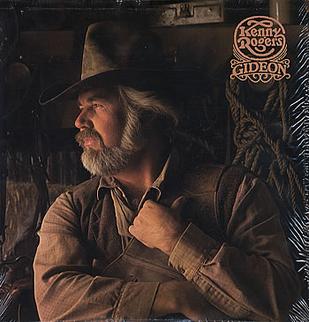
Gideon is the ninth studio album by American singer Kenny Rogers released by United Artists Records in 1980. The album hit #1 on the Country albums chart and #12 on the main Billboard album chart. It includes the worldwide hit "Don't Fall in Love with a Dreamer". Gideon was certified platinum by the RIAA.
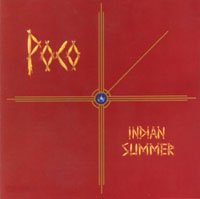
Indian Summer is the tenth studio album by the American country rock band Poco, released on May 1, 1977. The appearance of Steely Dan's Donald Fagen playing synthesizer on two of the tracks marked another move away from the country rock sound the band had primarily been known for. This was the band's last studio album before both Timothy B. Schmit and George Grantham left the group.

Climbing! is the debut studio album by American hard rock band Mountain. It was released on March 7, 1970, by Windfall Records.
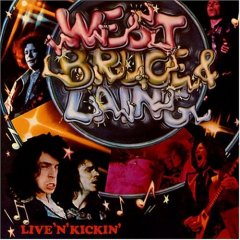
Live 'n' Kickin' is a live album by the power trio West, Bruce and Laing, released in 1974. It was the band's third and final album, as their disbanding was announced shortly before its release.

Whatever Turns You On is the second and last studio album by blues rock power trio/supergroup West, Bruce and Laing.

The Best of Mountain is the only compilation album by American hard rock band Mountain. It consists of material recorded throughout 1970-1971, culled from their first three LPs. On 15 April 2003, the album was remastered and reissued in an expanded edition with new liner notes and four bonus tracks, two of which are taken from Leslie West's first solo album, 1969's Felix Pappalardi-produced Mountain, the project which eventually led to the formation of the band.

Masters of War is the eighth and final studio album by American hard rock band Mountain, released in 2007. The album consists entirely of Bob Dylan covers.

Theme is a 1988 album by Leslie West. It features Jack Bruce and Joe Franco. It takes its title from the track "Theme for an Imaginary Western", first recorded by Jack Bruce on Songs for a Tailor and subsequently featured on Mountain's debut album Climbing!.
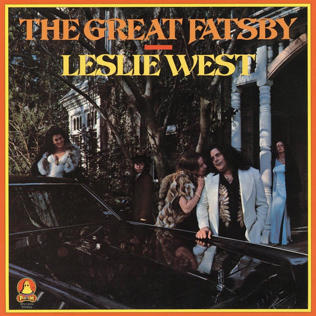
The Great Fatsby is the second album by American rock guitarist, singer and songwriter Leslie West. It was released on Bud Prager's Phantom Records in March 1975 and distributed by RCA Records. The album features Mick Jagger on rhythm guitar. The album features four original tracks alongside West's interpretation of six other songs: covers of tracks by Paul Kelly, the Animals, the Rolling Stones, Sharks, Tim Hardin and Free.

The Leslie West Band is the third album released by American rock guitarist Leslie West. The album, recorded at Electric Lady Studios in New York City, was released on Bud Prager's Phantom Records in 1976 and features Mick Jones, who formed Foreigner the following year, on guitar.
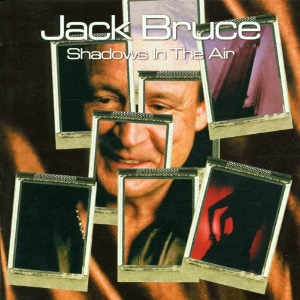
Shadows in the Air is the twelfth studio album by Scottish musician Jack Bruce, released in March 2001. It was the first of two Bruce albums to be co-produced by Kip Hanrahan.
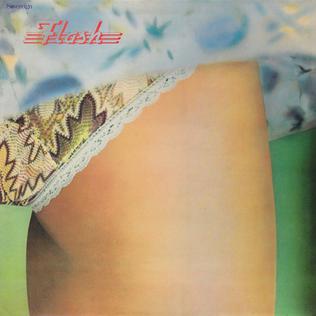
Flash is the self-titled debut studio album by British band Flash, released in February 1972 by Sovereign Records.



















